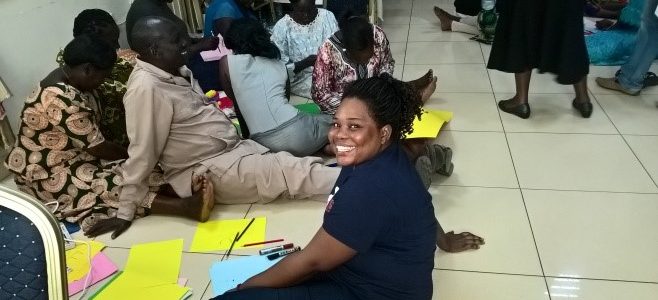South Sudan
Civil society organizations and networks of persons living with HIV are very crucial in supporting children and adolescents infected and affected by HIV. Therefore, the MoH of South Sudan with support from ANECCA held a three-day sensitization-training workshop for members of CSOs on the importance of providing PSS as part of their interventions and to highlight the importance of coordination and need for synergy between CSOs at community level and health facilities in the care of children and adolescents living with HIV.
“South Sudan had nothing before ANECCA in terms of paediatric and adolescent HIV services and we depend on partners in almost everything. South Sudan is one of the countries with Challenging Operating Environments (COE).
South Sudan is Africa’s youngest republic, having attained independence a little over 5 years ago. The decades-long civil war left over 2 million dead and led to the neglect of the health system, contributing to high rates of morbidity and mortality across the social strata
South Sudan has 1,147 functioning health facilities serving a population believed to be more than 12 million. Infrastructure is poor and health systems are weak. There is a big crisis in availability of health personnel, necessitating task shifting to community health workers and home health promoters. The estimated HIV prevalence for 2015 was 2.7% (40). In the same year, it was estimated that about 180,000 people including 14,000 children were living with HIV. Similar to other sub-Saharan countries, women, particularly in the age groups 20–24 years and 25–29 years, are disproportionately affected due to sociocultural and economic risk factors. By June 2016, only 27 sites across the country were offering comprehensive HIV treatment, care and support to people living with HIV (41). Hence the low coverage: only < 5% of all adults and 3% of all children living with HIV are on treatment.
ART coverage for children and adolescents living with HIV is low compared with adults, where ANECCA implemented a regional project to improve coverage and quality of care.
Catalyzing Access to Quality Services for Children and Adolescent Living with HIV/AIDS
Country Action Plan for policy review and training needs assessment findings for children and adolescent HIV/AIDS
ANECCA
ANECCA commissioned a team of international and national consultants to conduct rapid assessments of the performance gaps among healthcare workers in the provision of HIV services to children and adolescents in seven countries, including South Sudan that could be addressed through appropriate training and mentorship.
As part of the process, ANECCA conducted a Regional Trainers of Trainers (TOT), where five persons were engaged in an in-depth competence building training, as Regional Trainers, from South Sudan. In a bid to roll out the training in-country, ANECCA together with National Ministry of Health organized the National TOT to build capacity, at greater Equatoria level for health care providers, which later will be conducted in two regions of Upper Nile and Bahr el-Ghazal, so as to sustain this effort.


